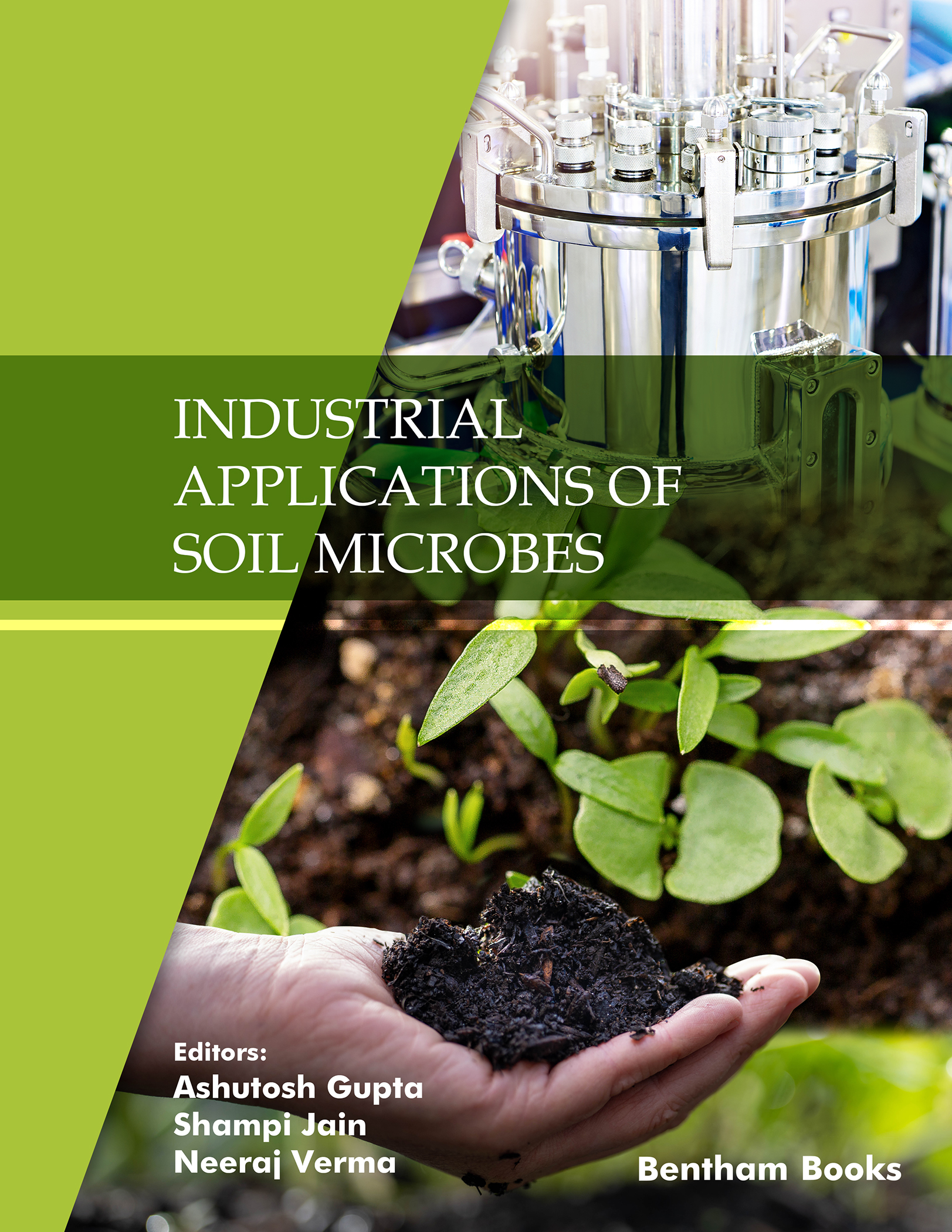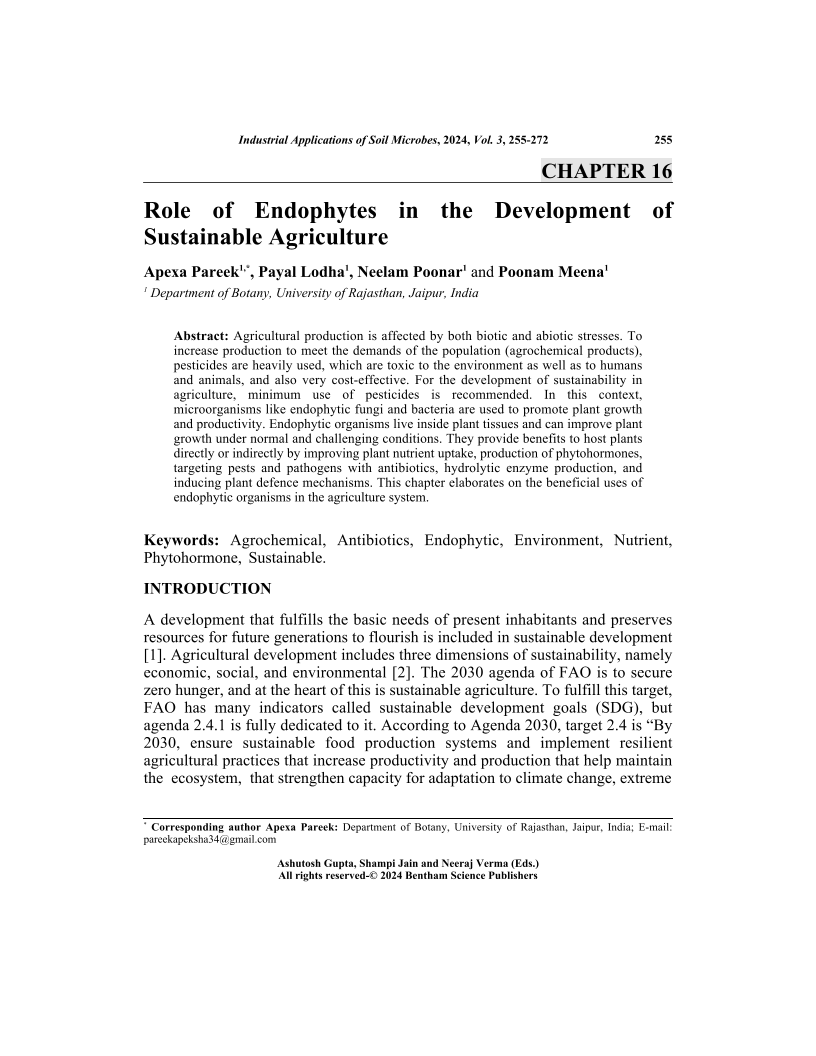Role of Endophytes in the Development of Sustainable Agriculture

- Authors: Apexa Pareek1, Payal Lodha2, Neelam Poonar3, Poonam Meena4
-
View Affiliations Hide Affiliations1 Department of Botany, University of Rajasthan, Jaipur, India 2 Department of Botany, University of Rajasthan, Jaipur, India 3 Department of Botany, University of Rajasthan, Jaipur, India 4 Department of Botany, University of Rajasthan, Jaipur, India
- Source: Industrial Applications of Soil Microbes: Volume 3 , pp 255-272
- Publication Date: April 2024
- Language: English
Role of Endophytes in the Development of Sustainable Agriculture, Page 1 of 1
< Previous page | Next page > /docserver/preview/fulltext/9789815079753/chapter-16-1.gif
Agricultural production is affected by both biotic and abiotic stresses. To increase production to meet the demands of the population (agrochemical products), pesticides are heavily used, which are toxic to the environment as well as to humans and animals, and also very cost-effective. For the development of sustainability in agriculture, minimum use of pesticides is recommended. In this context, microorganisms like endophytic fungi and bacteria are used to promote plant growth and productivity. Endophytic organisms live inside plant tissues and can improve plant growth under normal and challenging conditions. They provide benefits to host plants directly or indirectly by improving plant nutrient uptake, production of phytohormones, targeting pests and pathogens with antibiotics, hydrolytic enzyme production, and inducing plant defence mechanisms. This chapter elaborates on the beneficial uses of endophytic organisms in the agriculture system.
-
From This Site
/content/books/9789815079753.chapter-16dcterms_subject,pub_keyword-contentType:Journal -contentType:Figure -contentType:Table -contentType:SupplementaryData105

